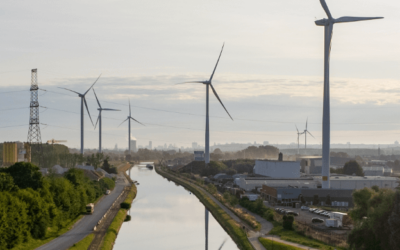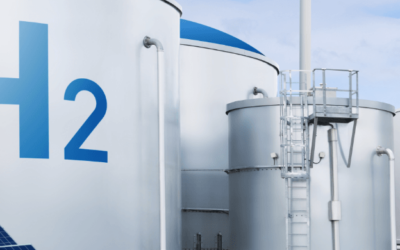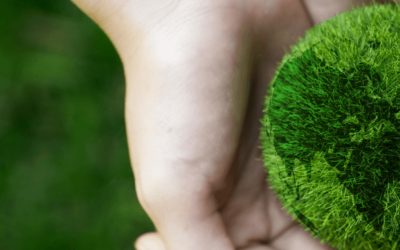Are you working on projects that benefit the climate and the environment and contribute to the ambitious European goals in this area? If so, you may be eligible for funding from the European LIFE programme. The upcoming call for ‘traditional’ Standard Action Projects is expected to close in September. Submitting a LIFE application takes a lot of preparation. So, time to get started now!
What is LIFE?
LIFE stands for L’Instrument Financier pour l’Environnement (the Financial Instrument for the Environment). It is the main European funding programme to stimulate innovation benefiting the environment and the climate. By boosting and integrating the implementation of the EU’s policy objectives, LIFE sees itself as a key contributor to the European Green Deal. The focus of most of the projects is therefore on ‘develop, demonstrate and promote innovative techniques, methods and approaches for reaching the objectives of EU policy’. Unique features of this programme are its thematic bottom-up approach, its flexibility and its relatively high grant amounts and percentages.
What kind of projects?
LIFE is funding environment and climate projects using four subprogrammes with a large number of priority topics. These range from saving protected natural area projects, to increasing recycling, but also includes projects on pollution reduction. It does so mainly via the Standard Action Projects (SAPs) – the regular large demonstration projects – but also to a lesser extent via other strategic or assistance actions from national governments.
A typical LIFE project is about a financially sound large company wanting to invest in relatively innovative equipment with significant environmental benefits and wanting to actively demonstrate this. LIFE is for major projects – typically 3 to 6 million euros of funding – in their final stages of development (reaching TRL 6-8 in the next three years) and often has only one applicant. Some innovation is required, but more important is the link with (upcoming) European policy and the impact it can generate in terms of a quantitative reduction, but also in being an example for the whole EU. For the SAPs, the funding percentage is a maximum of 60% for the eligible costs.
Deadline in September
The LIFE call for proposals is expected to be published mid-April. The deadline for the SAP calls is probably in September 2023. The European Commission only uses one-stage applications this year. Projects can start after the Grant Agreements have been concluded, which is expected to be in Augustus 2024. The deadlines may seem a long way off, but they will be there sooner than you think. It is a good idea to be ready with a final version of the project idea around summer (or earlier), to ensure you can make your submission on time!
LIFE: priority topics
LIFE has broad thematic calls – the kind of projects that are eligible are typically very similar over the years. Awaiting the final publication in mid-April, the Priority Topics have already been published. In short, there are again very good possibilities in the ‘Circular Economy and Quality of Life’ and ‘Climate Mitigation and Adaptation’ subprogrammes. Particularly for large innovative recycling investments (Waste from Electrical and Electronic Equipment (WEEE), batteries, plastics, critical raw materials (CRM), but there are also other interesting topics for organisations in the mobility sector (electro-mobility or hydrogen), greenhouse gas (GHG) reduction of in the industry or (industrial) water management.
Subprogrammes
All four subprogrammes of LIFE with the priority topics are described below:
- Nature and Biodiversity. Topics are mainly related to Natura 2000 habitats.
- Circular Economy and Quality of Life. Topics are: circular economy and waste, air quality (including sustainable mobility), water (e.g. (waste) water quality but also think of underwater noise or overfishing), soil, noise, chemicals, new European Bauhaus.
- Climate Mitigation and Adaptation. Topics are: GHG emission reduction (focus on fluorinated gases), GHG reduction of the energy intensive industry (pre-Innovation Fund), land (e.g. agricultural) and sea management practices for carbon sinks, coping with climate change (extreme weather, using Nature Based Solutions (NBS), adapting cities).
- Clean Energy Transition. Primarily Coordination and Support Actions (CSA) for projects on the transition to renewable energy and increased energy efficiency by breaking market barriers, through activities including capacity building, dissemination of information and knowledge, or awareness raising.
There are also more ‘Horizon Europe like’ possibilities in the new Clean Energy Transition CSA call topics (Coordination and support actions) with deadlines in November 2023. For example, in the built environment and energy investments. So, as you can see the type of projects that can be funded by LIFE is quite diverse!
Make your LIFE project a success!
There is strong competition for the budget available through the LIFE programme, and the EU awards grants to only the best applications. It is therefore very important for you to ‘design’ your project well and justify your choices! EGEN’s LIFE experts are happy to assist you in this. We will work with you both to determine how to best align your project with the LIFE objectives and to help you prepare and submit a successful grant application.


